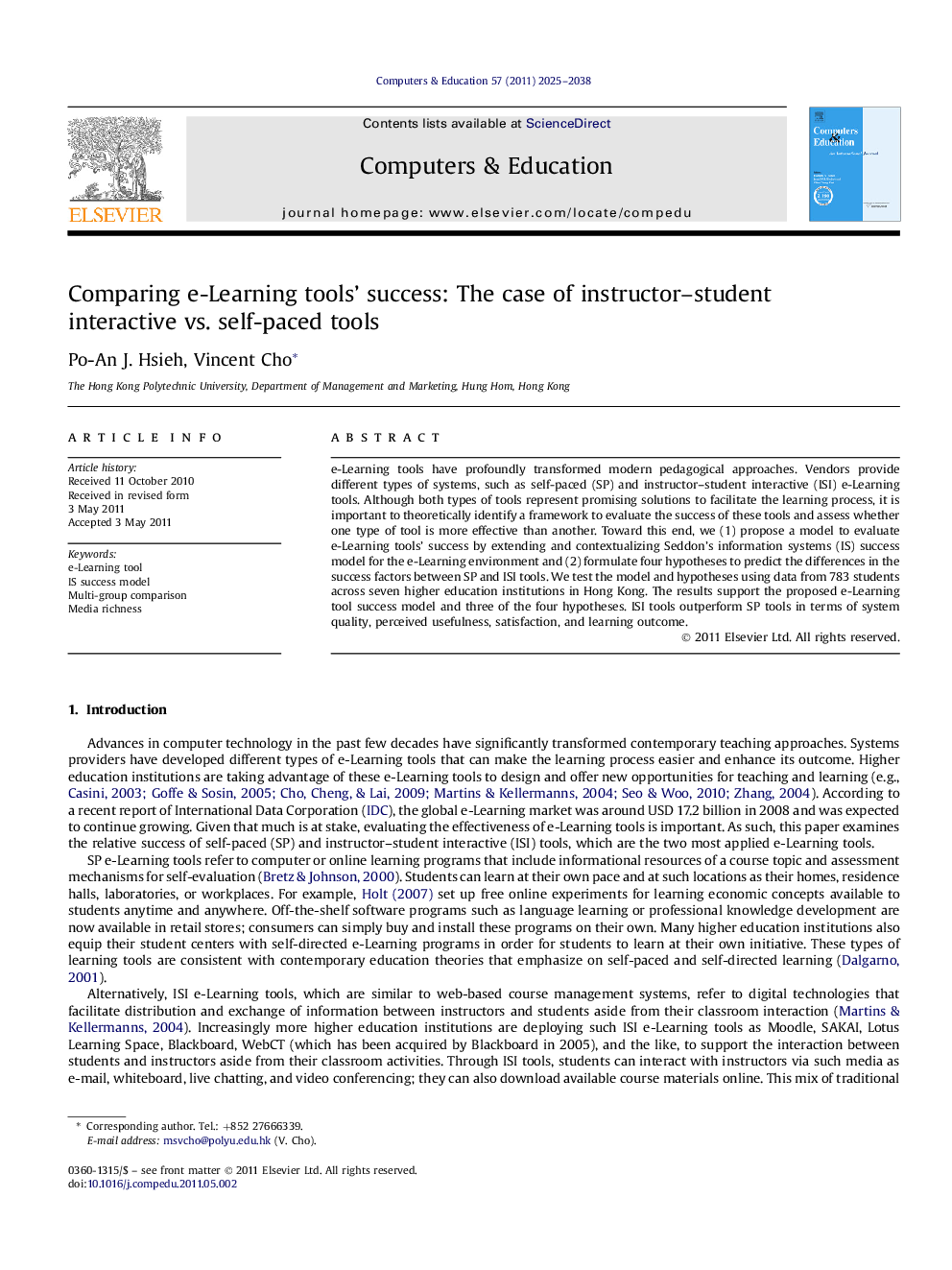| کد مقاله | کد نشریه | سال انتشار | مقاله انگلیسی | نسخه تمام متن |
|---|---|---|---|---|
| 348787 | 618202 | 2011 | 14 صفحه PDF | دانلود رایگان |

e-Learning tools have profoundly transformed modern pedagogical approaches. Vendors provide different types of systems, such as self-paced (SP) and instructor–student interactive (ISI) e-Learning tools. Although both types of tools represent promising solutions to facilitate the learning process, it is important to theoretically identify a framework to evaluate the success of these tools and assess whether one type of tool is more effective than another. Toward this end, we (1) propose a model to evaluate e-Learning tools’ success by extending and contextualizing Seddon’s information systems (IS) success model for the e-Learning environment and (2) formulate four hypotheses to predict the differences in the success factors between SP and ISI tools. We test the model and hypotheses using data from 783 students across seven higher education institutions in Hong Kong. The results support the proposed e-Learning tool success model and three of the four hypotheses. ISI tools outperform SP tools in terms of system quality, perceived usefulness, satisfaction, and learning outcome.
► Theoretically identify a framework to evaluate the success of self-paced and instructor–student interactive e-Learning tools.
► Test and analyze the research model using data from 783 students across seven higher education institutions in Hong Kong.
► Instructor–student interactive e-Learning tools outperform self-paced ones in terms of system quality, perceived usefulness, satisfaction and learning outcomes.
Journal: Computers & Education - Volume 57, Issue 3, November 2011, Pages 2025–2038